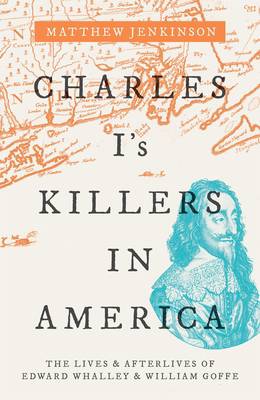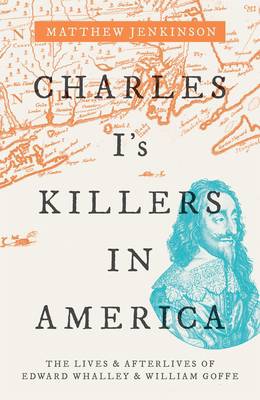
- Afhalen na 1 uur in een winkel met voorraad
- Gratis thuislevering in België vanaf € 30
- Ruim aanbod met 7 miljoen producten
- Afhalen na 1 uur in een winkel met voorraad
- Gratis thuislevering in België vanaf € 30
- Ruim aanbod met 7 miljoen producten
Zoeken
Charles I's Killers in America
The Lives and Afterlives of Edward Whalley and William Goffe
Matthew Jenkinson
Hardcover | Engels
€ 47,45
+ 94 punten
Omschrijving
When the British monarchy was restored in 1660, King Charles II was faced with the conundrum of what to with those who had been involved in the execution of his father eleven years earlier. Facing a grisly fate at the gallows, some of the men who had signed Charles I's death warrant fled to America. Charles I's Killers in America traces the gripping story of two of these men -- Edward Whalley and William Goffe -- and their lives in America, from their welcome in New England until their deaths there. With fascinating insights into the governance of the American colonies in the seventeenth century, and how a network of colonists protected the regicides, Matthew Jenkinson overturns the enduring theory that Charles II unrelentingly sought revenge for the murder of his father. Charles I's Killers in America also illuminates the regicides' afterlives, with conclusions that have far-reaching implications for our understanding of Anglo-American political and cultural relations. Novels, histories, poems, plays, paintings, and illustrations featuring the fugitives were created against the backdrop of America's revolutionary strides towards independence and its forging of a distinctive national identity. The history of the 'king-killers' was distorted and embellished as they were presented as folk heroes and early champions of liberty, protected by proto-revolutionaries fighting against English tyranny. Jenkinson rewrites this once-ubiquitous and misleading historical orthodoxy, to reveal a far more subtle and compelling picture of the regicides on the run.
Specificaties
Betrokkenen
- Auteur(s):
- Uitgeverij:
Inhoud
- Aantal bladzijden:
- 288
- Taal:
- Engels
Eigenschappen
- Productcode (EAN):
- 9780198820734
- Verschijningsdatum:
- 1/08/2019
- Uitvoering:
- Hardcover
- Formaat:
- Genaaid
- Afmetingen:
- 157 mm x 236 mm
- Gewicht:
- 498 g

Alleen bij Standaard Boekhandel
+ 94 punten op je klantenkaart van Standaard Boekhandel
Beoordelingen
We publiceren alleen reviews die voldoen aan de voorwaarden voor reviews. Bekijk onze voorwaarden voor reviews.











